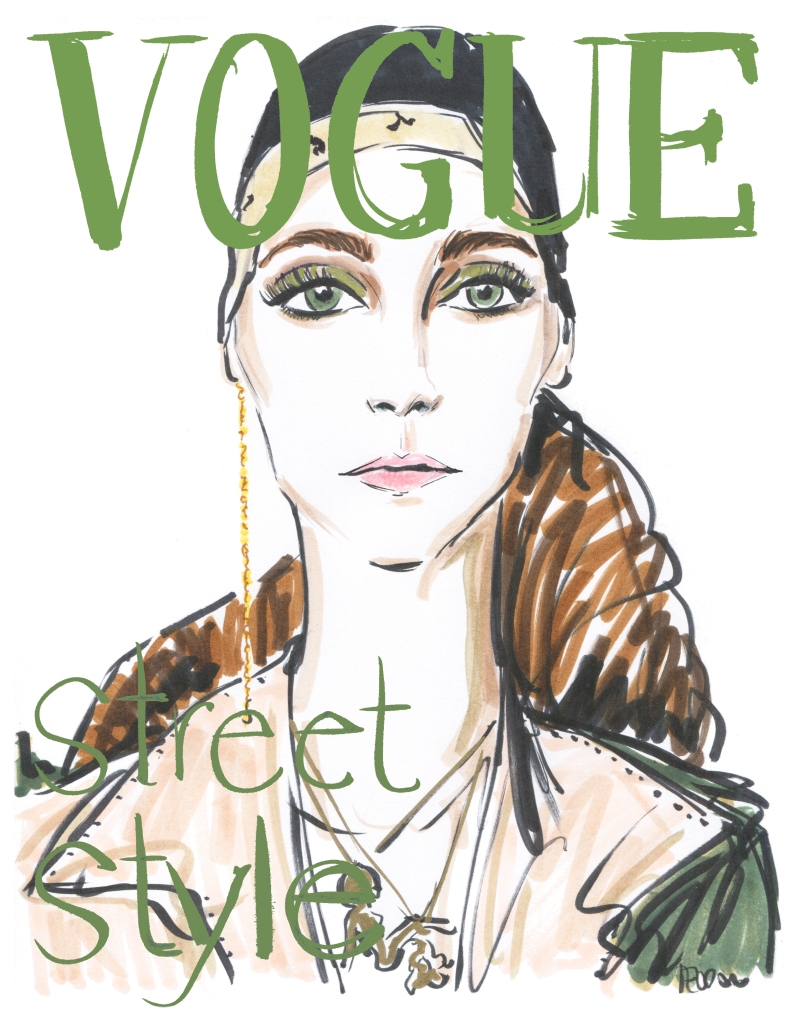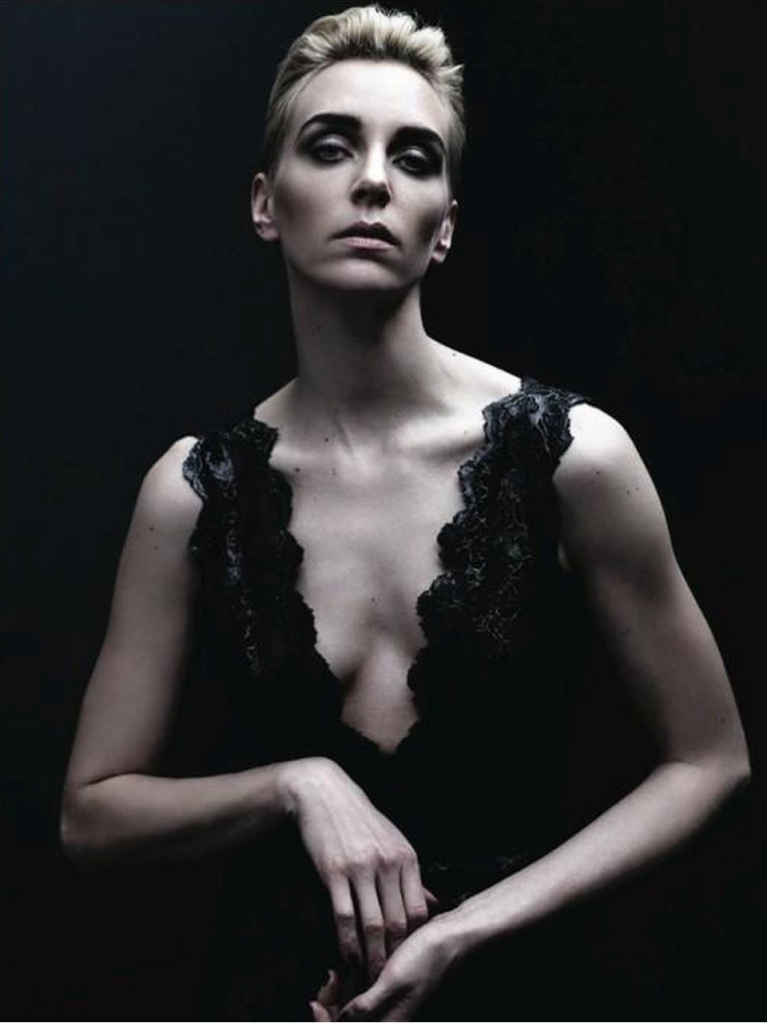As one of the most successful and enduring models of a generation, Hannelore Knuts’s appeal has outlasted trends and the fashion industry’s insatiable need for novelty. The reluctant supermodel was doggedly pursued before she relented and agreed to give modeling a try. What chance did she stand against kismet? As a model, artist, and now mindfulness and compassion meditation teacher, Hannelore’s journey through self-discovery encompasses everything she does. I caught up with her via Zoom from her home in Antwerp to reflect on her beginnings, shortcomings of the fashion industry, and what place creativity has in a capitalist society.
Let’s start with how you were discovered.
I was a photography student at the academy where we also have a famous fashion department. I ended up on the catwalk there before anything else. A lot of people kept telling me I had a good face and could have a future in modeling, but I wasn’t interested. A few months later, there was a Post-it note dropped in the mailbox of my student flat—by an ex-student who then worked for Veronique Branquinho, who was having her first show in Paris—looking for models. I was a student who didn’t have any money and they were offering 500 Belgian Francs—which isn’t a lot but as a student it was to me—so I went for it. The bus left the next day and I went to Paris for free and get a free meal, so I thought it was good. In Paris there was an international scout, and a Belgian journalist who both spotted me. The journalist wanted to make a documentary about new models and she wanted to do it on me but I told her I wasn’t interested. Weeks later, she came back and told me she found other models to fill up the documentary but I was the one with the connection to the Parisian scout. I agreed to participate to get her off my back.
Would this have been the era of Anouck and Delfine?
No, that was way before. The documentary still exists somewhere in a far corner on the internet. The Parisian scout immediately saw I wasn’t interested—and to be polite—he suggested I visit an agency in Belgium. On the train homeI asked the documentary makers if we were finished but they insisted I register with a Belgian agency to complete the documentary. The next day I went to an agency and signed with them and went home. Many weeks later, the agency called and told me they believed in me and that show season was starting soon and asked if I would go. I agreed to give it a try. My first show was Alexander McQueen in London, and then I went to Milan and did one casting and I got an exclusive for Jil Sander. Then boom I was doing seven shows a day. Suddenly I was on this roller coaster and there wasn’t a way to get off.
Were you aware how successful you were at the time?
I had no clue what fashion was. It was pre-internet so the only way you knew about fashion was if you were really interested, and especially in a small town in Belgium Vogue wasn’t in any news. You had to go to a specific shop to buy it, so it’s not something you came across. The only thing I knew about fashion was Gaultier, because he designed Madonna’s conical bra, and Chanel. My first season was so overwhelming. I remember being angry at my agent and thinking when do we stop and eat? I was doing seven shows a day and then after Fashion Week in Milan and Paris I couldn’t go home because I had to do a photo shoot. At some point—maybe in my second season—I realized I knew Kate Moss and Naomi Campbell, and it started to dawn on me at what level I was. During my first shoot with Steven Meisel I didn’t even know who he was.

He’s so influential in terms of making careers. Do you think it was a blessing you weren’t aware of who he was? Do you think you would have been too self-conscious to perform if you did?
Yeah. Especially in those times I was still figuring out who I was. I already felt like they picked the wrong girl. My insecurity and fear of saying no was bigger than my shyness. I thought I would just do this because I didn’t want to say no. Before I shot with Steven I shot with Inez and Vinoodh. That was a beautiful gift because they were Dutch and spoke Dutch like I do. I still had no clue what I was doing, but it was nice to hear that familiar language. They helped me a lot in finding comfort in front of the lens. They guided me and taught me how to hold my hands and how to point my ankle like this or that. It became very mathematical almost, and they gave me space to translate it into my own. It was really beautiful to have them as my teachers in a way.
Who were your biggest advocates at the time?
Inez and Vinoodh, for sure, because they booked me for the Yohji Yamamoto campaign and I had a few photos in my portfolio. Obviously Steven Meisel, but there was also Steven Klein, Victoria Bartlett, and Martine Sitbon. As for models there was Stella, Erin, and Kirsten. I always also said to my agent that I wanted my career to be like Kirsten’s career. Stella and Erin were the first ones to approach me backstage.
That’s refreshing because you are all competing against each other to book jobs. Did you experience rivalry?
I never experienced jealousy or nasty behavior among the girls. Of course you’re disappointed if you don’t book a job—I want to pay my bills too or I want to have that job because my ego wants to be on that billboard—but I never experienced nasty behavior toward me. But it is true, that as a model, you do get to deal with rejection and comparison.
I think when you’re young, you try to find your own coping mechanisms. After a while you realize you have to deal with it. I think that’s what you’re seeing now. It’s really good how girls are doing the work and how it could be a really beautiful example for everybody. We live in a competitive culture, and we think that it’s the best motivator. I hope we soon realize it’s not because you lose so much energy in competing. Sharing your doubts and helping each other grow is much more sustainable.
I read your Instagram post about wage transparency. So let me ask, how do you advocate for yourself? How do you say no I’m not doing that for free, and why speak out now?
Well, first of all, because of my own personal journey, I feel better in my skin. I meditate daily, so I have a clear vision. I am allowed to have a voice and it’s okay if you don’t like it but I’m allowed to have one. I haven’t been working that much—because I’m saying no a lot— and I know that is harmful to my career. You constantly think is this the end of my career? There is no end in a model’s career. If you ask me, then I’m a model again, and if you don’t, then I’m a mom or whatever I’m doing at the moment. I don’t know why I posted it specifically on that day. I had it ready for a long time. I posted it without thinking about what the consequences could have been. Maybe that’s good because things need to change.
It’s not only that my face has proven its worth in sales, but there is a skill to modeling. When I work with young photographers—who only work with young girls—the day goes fast because I know what I’m doing. I deliver more than they ask. It’s not only the profit they’ll make, it’s also the skill that I bring to the table and the added value. I think it’s a shame the craft is being lost. I’m not saying young girls are supposed to know how to do it—they need to grow into it. I look at my early modeling photos and I see a different model than what I am now.
I think people often forget you are somebody earning a living. There’s this perception that if you’re a successful model you should shut up and not complain.
Also, I’m not even getting paid. The things considered perks like going to parties or getting paid in samples doesn’t pay my rent. Everybody thinks I’m rich—and maybe I could have been—if I wasn’t 20 and not knowing how to budget. I had a period of time when I made money and that’s why I am not struggling, but I definitely need to have an income. I plan on living a long time and I don’t have enough money to just go sit on a beach for the rest of my life.
It doesn’t add up and people try to make you feel guilty. When I moved back to Belgium people expected me to work for free because we were friends. Even if I was rich that doesn’t make me your property and you can’t just use. I wanted to make that clear to people. I’m a business owner and I’m trying to keep my business afloat. And the way it is structured now is not working. Yes, I could choose to go do another job, but that’s also easier said than done, and why should I have to? I actually happen to like this job.
The world is not only nine to five. People who like to paint are just as important as people who like to do plumbing or whatever. That’s another thing we keep forgetting, the value of creativity and the value of expression. It all has gotten down to numbers. It needs to be numbers, numbers, that’s what’s killing it. I hope we find a way and we just all have to wake up a little bit and try to stop this capitalist mindset.
Follow her on Instagram
